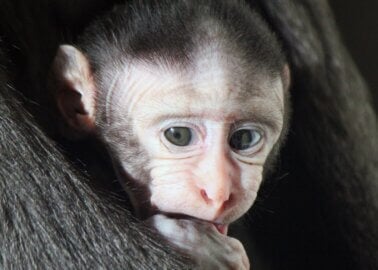Why Is Britain Going in the Wrong Direction on Animal Testing?
Today, the Home Office released statistics on the number of experiments on animals conducted last year. It’s not good news.

In 2013, animal testers in Great Britain used more than 4.01 million animals in experiments, a 52 per cent increase since 2000. The number of experiments was the highest in a generation – a step backwards for scientific progress in this country and a catastrophe for the millions of animals who live and die in laboratory cages.
Most of these animals lost their lives because of genetic engineering experiments, an imprecise, inefficient and unreliable “Frankenstein science” in which mothers undergo invasive procedures to insert or delete certain genes in their offspring. Only 3 to 5 per cent of all animals born actually carry the genes of interest, and the rest of the babies are usually killed soon after birth. Of the ones allowed to live, the young often die prematurely or are born with unpredictable behavioural and physiological abnormalities, such as increased sensitivity to pain, malfunctioning organs, susceptibility to seizures or rampant tumour growth. There were also dramatic increases in the number of experiments conducted on monkeys and guinea pigs.
Statistics can never reveal the full extent of suffering endured by each and every one of the individuals who were poisoned, cut open, blinded, electrocuted or infected with deadly diseases in barren, windowless prisons. We don’t even know the full extent of the abuse, as experiments on animals in the UK are currently shrouded in a veil of secrecy – something that we’ve been working hard to change.
 There’s no excuse for this hidden massacre. Although animals have the same capacity to feel fear and pain that humans have, our physiology is vastly different. And that is why animal experiments are not good science.
There’s no excuse for this hidden massacre. Although animals have the same capacity to feel fear and pain that humans have, our physiology is vastly different. And that is why animal experiments are not good science.
Evidence recently published in the BMJ (formerly known as the British Medical Journal) demonstrates that experiments on animals systematically fail to benefit humans. Instead, they lead to expensive and fruitless clinical trials, which can endanger human life, cause millions of animals to suffer, cost billions of pounds and lead researchers away from possible beneficial therapies.
Forward-thinking researchers have succeeded in developing reliable alternatives to harming animals. For example, new “organs-on-chips” contain lab-grown human cells which mimic the structure and function of human organs, while MatTek’s EpiDermTM Tissue Model, a 3-dimensional, human cell–derived skin model, replicates key traits of normal human skin.
These are the types of innovative projects that Britain needs to invest in. Instead, the preoccupation with archaic, unreliable and unethical tests on animals is dragging down scientific progress – and taking millions of animals with it.



